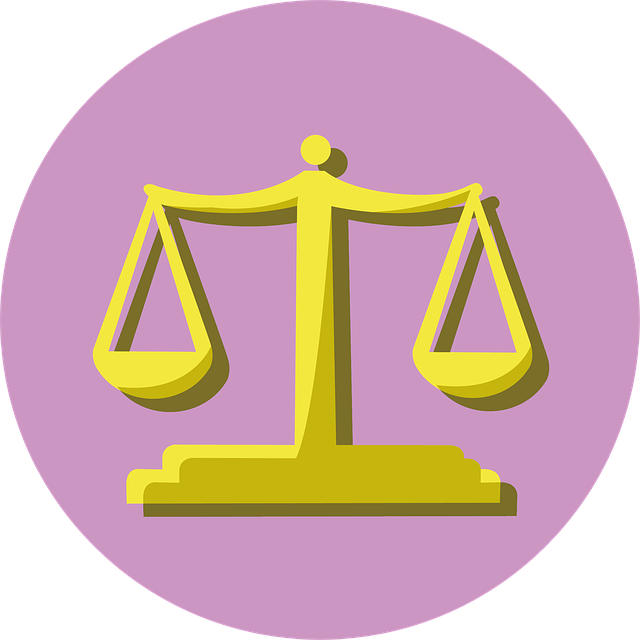Contempt of court, a legal issue encompassing civil and criminal aspects, involves ignoring or refusing to obey court orders. The legal framework includes direct and indirect actions, with penalties from fines to imprisonment. Effective enforcement relies on structured procedures, judge impartiality, attorney advocacy, and party accountability. Remedies like fines, imprisonment, community service, and asset seizure deter non-compliance. Proactive prevention through clear communication, monitoring, and regular updates enhances the legal enforcement of court orders.
“Explore the intricate world of contempt enforcement procedures within the legal system. This comprehensive guide delves into the definitional and typological nuances of contempt of court, highlighting its various forms. We dissect the legal framework governing the enforcement of court orders, differentiating direct from indirect actions.
Understand the interwoven roles of judges, attorneys, and parties, along with strategic remedies such as fines and imprisonment. Learn proven methods to prevent and respond to contempt, gaining invaluable insights into navigating this critical aspect of legal enforcement.”
- Understanding Contempt of Court: Definitions & Types
- Legal Framework for Enforcing Court Orders
- Direct vs Indirect Contempt Enforcement Actions
- Roles & Responsibilities: Judges, Attorneys, & Parties
- Remedies & Consequences: Fines, Imprisonment, & Other Penalities
- Strategies for Preventing & Responding to Contempt
Understanding Contempt of Court: Definitions & Types

Contempt of court is a serious legal issue that arises when an individual or entity fails to comply with a court order. It’s a broad term encompassing various types of behaviour, each carrying distinct implications. One common type is civil contempt, where a person deliberately disregards a court-issued mandate, often relating to financial obligations or non-disclosure agreements. In contrast, criminal contempt involves acts that obstruct judicial proceedings, such as disrupting court sessions or refusing to testify.
The legal enforcement of court orders hinges on the understanding and accurate classification of contempt. Courts employ different strategies based on the type, from fines and imprisonment for civil contempt to potential criminal penalties and sanctions for more severe cases. Effective contempt enforcement is crucial for upholding the integrity of judicial processes and ensuring that all parties involved abide by the established rules and regulations.
Legal Framework for Enforcing Court Orders

The legal framework for enforcing court orders is a critical aspect of ensuring justice and maintaining order within society. When an individual or entity fails to comply with a court’s mandate, specific procedures come into play to address this contempt. These mechanisms are designed to uphold the integrity of judicial decisions and protect the rights of all involved parties.
Contempt of court is a legal concept that arises when someone willfully ignores or refuses to obey a court order. It can be civil or criminal in nature, depending on the context. Civil contempt involves non-compliance with an order intended to enforce a right or remedy, while criminal contempt relates to acts that disrupt judicial proceedings. The process typically includes notice, hearings, and potential penalties, including fines or imprisonment, to encourage obedience and deter future violations.
Direct vs Indirect Contempt Enforcement Actions

Contempt enforcement procedures can be broadly categorized into two types: direct and indirect actions. Direct contempt enforcement involves immediate and direct disobedience of a court order, such as refusing to pay alimony or ignoring a restraining order. In such cases, the court has the power to hold the contemner in contempt on the spot and impose penalties, including fines or imprisonment. This approach is swift and can be effective in situations where quick action is necessary to preserve the integrity of a legal order.
Indirect contempt enforcement, on the other hand, relates to actions that indirectly obstruct or interfere with the administration of justice. This includes failure to comply with discovery orders, delaying judicial proceedings, or falsifying evidence. Legal professionals must carefully navigate indirect contempt cases as they often require more nuanced strategies. The court may issue citations, hold hearings, and ultimately utilize sanctions or even incarceration if the contemner fails to show cause for their non-compliance after due notice.
Roles & Responsibilities: Judges, Attorneys, & Parties

In the legal enforcement of court orders, a well-defined role and responsibilities structure is crucial for ensuring justice is served efficiently. Judges play a pivotal role, acting as arbiters charged with interpreting laws and ensuring compliance with court orders. They possess the authority to hold parties in contempt when necessary, issuing sanctions or sentences to enforce adherence to their directives.
Attorneys also bear significant responsibility, serving as advocates for their clients while adhering strictly to ethical guidelines. Their duty is to represent their clients’ interests within the bounds of the law, including ensuring compliance with court-mandated actions and informing judges of any potential issues that may impede the legal enforcement of court orders. Parties involved in litigation are ultimately accountable for understanding and fulfilling their obligations as dictated by the court, under penalty of contempt.
Remedies & Consequences: Fines, Imprisonment, & Other Penalities

When individuals or entities fail to comply with a court order, the legal system employs various remedies and consequences as part of the legal enforcement of court orders. One of the most common penalties is a fine, which can be imposed for non-compliance. The amount of the fine varies depending on the nature and severity of the contemptuous act, as well as any financial burden the party being held in contempt may already face. Fines serve as a significant deterrent and can put pressure on the contemnor to fully comply with the court’s decision.
In addition to fines, imprisonment is another severe consequence for contempt of court. This is particularly applicable when an individual willfully ignores or obstructs a legal process. The duration of imprisonment can range from a few days to several months, depending on the circumstances and the discretion of the judge. Imprisonment acts as a stark reminder of the consequences of non-compliance, potentially prompting the contemnor to rectify their actions promptly. Other penalties may include community service, asset seizure, or restrictions on certain activities, all aimed at encouraging adherence to court orders and maintaining the integrity of the legal system.
Strategies for Preventing & Responding to Contempt

Preventing contempt is a proactive approach that can significantly impact the successful legal enforcement of court orders. One key strategy involves clear and comprehensive communication. Parties involved should ensure that all terms, conditions, and deadlines set by the court are well-understood and agreed upon. Regular check-ins and transparent discussions can help identify potential issues before they escalate into contemptuous behavior.
Additionally, establishing robust monitoring systems and regular reporting mechanisms can serve as a deterrent. This includes implementing compliance checks, using technology to track progress, and requiring frequent status updates. Such measures not only facilitate the legal enforcement of court orders but also foster a culture of accountability, encouraging all parties to adhere to their obligations.






